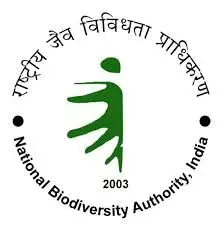Plant genetic resources were considered to be heritage of mankind and was shared freely among nations, till the concern for conservation of biological diversity were raised by the Convention of Biological Diversity (CBD), 1993. India being a signatory to CBD, enacted the Biodiversity (BD) Act in 2002, (hereinafter referred as “Act”) with three main objectives:
- conservation of biological diversity,
- sustainable use of its components, and
- equitable sharing of benefits arising out of the use of biological resources.
For the effective implementation of the Act, a three-tier system was established with a National Biodiversity Authority (NBA) at the Centre, State Biodiversity Boards (SBBs) in each of the Indian states and local-level Biodiversity Management Committees (BMCs) functioning with both municipalities and panchayats. Further, India adopted Nagoya Protocol (2014) on Access to Genetic Resources and the Fair and Equitable Sharing of Benefits Arising from their Utilization to the Convention on Biological Diversity, a supplementary provision in compliance with the third objective of CBD, 2002. In pursuance of the Nagoya Protocol, NBA published Guidelines on Access to Biological Resources and Associated Knowledge and Benefits Sharing Regulations, 2014, popularly known as ABS guidelines, 2014. These guidelines provide a detailed procedure for determination and sharing of benefits arising out of the use of biological resources obtained from India.
The provisions of the BD Act, 2002, have differential restrictions and exemptions, depending on the person involved or the activity envisaged with respect to bio-resources. Foreign nationals or Indian citizen or body corporate falling under Section 3 (2) of the Act, are required to obtain prior approval of NBA for obtaining any biological resource occurring in India or knowledge associated thereto for research or for commercial utilization or for bio-survey and bio-utilization. Provided that under Section 5, collaborative research projects are exempted from prior-approval of NBA. In case of obtaining intellectual property rights (IPR) on research results involving biological resources obtained from India, prior NBA approval is required under Section 6, irrespective of the category of the person. Further, under Section 7, Indian nationals or a body corporate, association or organization which is registered in India shall not obtain any biological resource for commercial utilization, or bio-survey and bio-utilization for commercial utilization, except after giving prior intimation to the concerned State Biodiversity Board in the prescribed manner. Provided that the provisions of this section shall not apply to the local people and communities of the area, including growers and cultivators of biodiversity, and vaids and hakims, who have been practicing indigenous medicine.
As per NBA official records, thousands of notices were issued by SBBs under Section 7 of the Act to various Indian companies including those of pharmaceuticals, ayurvedic, coal extracting, liquor, sugar, oil as well as food and industrial processors using bio-resources, for deposition of a “benefit sharing” amount as per ABS guidelines, 2014. Several times this issue got media attention and various reports were published in leading newspaper where the companies challenged the vires of the state rules and ABS Guidelines, which ask for benefit sharing upon access by Indian entities. One of the leading case in this regard is the Uttarakhand HC case, filed in 2016 by Ramdev’s Hardiwar-based Divya Yoga Mandir Trust when the Uttarakhand State Biodiversity Board (SBB) asked its pharma unit, Divya Pharmacy, to share INR 20.4 million of its INR 4.21-billion revenue in 2014-15 with farmers as benefit sharing under the BD Act, 2002. Patanjali pleaded in the Court that it being an Indian company hence, ABS compliance is not applicable to it. In 2015, the Ayurvedic Drug Manufacturers Association (ADMA) approached government officials for modification in provisions of ABS guidelines, 2014, but the response was not favorable to them. As per official records, only a handful of companies are sharing their profits as per ABS guidelines, 2014. Hence, at present, the effectiveness of the regulatory regime on benefit sharing is not very promising in herbal sector.


